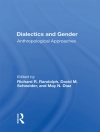In 1996, Democratic president Bill Clinton and the Republican-controlled Congress "ended welfare as we know it" and trumpeted "workfare" as a dramatic break from the past. But, in fact, workfare was not new. Jennifer Mittelstadt locates the roots of the 1996 welfare reform many decades in the past, arguing that women, work, and welfare were intertwined concerns of the liberal welfare state beginning just after World War II.Mittelstadt examines the dramatic reform of Aid to Dependent Children (ADC) from the 1940s through the 1960s, demonstrating that in this often misunderstood period, national policy makers did not overlook issues of poverty, race, and women’s role in society. Liberals’ public debates and disagreements over welfare, however, caused unintended consequences, she argues, including a shift toward conservatism. Rather than leaving ADC as an income support program for needy mothers, reformers recast it as a social services program aimed at "rehabilitating" women from "dependence" on welfare to "independence, " largely by encouraging them to work. Mittelstadt reconstructs the ideology, implementation, and consequences of rehabilitation, probing beneath its surface to reveal gendered and racialized assumptions about the welfare poor and broader societal concerns about poverty, race, family structure, and women’s employment.
Jennifer Mittelstadt
From Welfare to Workfare [PDF ebook]
The Unintended Consequences of Liberal Reform, 1945-1965
From Welfare to Workfare [PDF ebook]
The Unintended Consequences of Liberal Reform, 1945-1965
购买此电子书可免费获赠一本!
语言 英语 ● 格式 PDF ● 网页 288 ● ISBN 9798890877338 ● 出版者 The University of North Carolina Press ● 发布时间 2006 ● 下载 3 时 ● 货币 EUR ● ID 9202056 ● 复制保护 Adobe DRM
需要具备DRM功能的电子书阅读器












